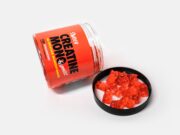Abstract
Social media platforms have become a powerful force shaping societal perceptions of masculinity and self-worth, contributing significantly to the rise of male enhancement products. By capitalizing on comparison culture, influencers, and targeted advertising, these platforms amplify insecurities and perpetuate unrealistic ideals. This article explores the interplay between social media and male enhancement culture, delving into the psychological impacts of curated content, the spread of misinformation, and the marketing strategies that sustain this industry. Finally, it offers actionable strategies to foster resilience, encourage critical thinking, and promote healthier interactions with digital spaces.
The Amplifying Effect of Social Media
Social media has evolved into a ubiquitous presence in daily life, shaping how individuals perceive themselves and others. For men, these platforms often emphasize physical perfection and performance, aligning closely with the promises made by male enhancement products. The curated nature of social media creates an environment where insecurities flourish, making users more susceptible to the allure of quick fixes and marketed solutions.
Platforms like Instagram, TikTok, and YouTube showcase idealized male bodies, often linked to concepts of success and desirability. This manufactured reality fosters a belief that enhancement products are a pathway to achieving these ideals, blurring the lines between authentic self-improvement and exploitative marketing.
Comparison Culture: A Catalyst for Insecurity
One of the most pervasive aspects of social media is comparison culture—the tendency to measure oneself against others based on carefully curated online personas. These comparisons often leave individuals feeling inadequate, as they are exposed to idealized images and narratives that rarely reflect reality.
Table 1: Psychological Impacts of Social Media Comparison
| Effect | Description | Prevalence |
|---|---|---|
| Decreased self-esteem | Users feel inferior to peers based on idealized content | 70% of surveyed users |
| Body dissatisfaction | Unrealistic body images lead to negative self-image | 65% of male users |
| Increased anxiety | Fear of not measuring up to societal standards | 50% of users |
Social media platforms exacerbate this phenomenon by prioritizing visually appealing and aspirational content. For men already grappling with insecurities, this constant exposure to perceived perfection creates a fertile environment for male enhancement product marketing.
Misinformation and Manipulation: The Role of Influencers and Advertising
The rise of influencers has redefined the way products are marketed, including male enhancement solutions. Social media personalities, often without medical expertise, promote these products through paid partnerships, perpetuating myths about their effectiveness and safety.
Key Strategies Used by Marketers
- Emotional Appeals: Advertisements tap into insecurities, promising confidence and desirability.
- Pseudo-Scientific Claims: Products are often marketed with vague scientific language to create a veneer of credibility.
- Limited Transparency: The risks and limitations of products are downplayed or omitted entirely.
Table 2: Common Marketing Claims vs. Reality
| Claim | Reality |
|---|---|
| “Clinically proven results” | Rarely supported by peer-reviewed research |
| “Natural ingredients with no side effects” | Many products contain unregulated substances |
| “Endorsed by experts” | Often unverified or paid endorsements |
This blend of misinformation and targeted advertising further entrenches the demand for enhancement products, leaving many men uninformed about their potential risks and limitations.
Strategies to Counter Social Media’s Impact
Recognizing the negative influence of social media is the first step toward mitigating its effects. Building resilience requires a combination of self-awareness, critical thinking, and intentional digital habits.
Recommendations for Building Resilience
- Promote Digital Literacy: Educating users about the tactics employed by marketers and influencers can help them navigate online spaces with greater skepticism.
- Foster Self-Compassion: Encouraging men to appreciate their inherent value beyond societal standards of appearance and performance can reduce susceptibility to comparison culture.
- Curate Digital Spaces: Users can take control by unfollowing accounts that perpetuate harmful ideals and engaging with content that promotes authenticity and well-being.
Additionally, mental health professionals can play a vital role by providing resources and support to individuals struggling with social media-induced insecurities.
Encouraging Critical Thinking in the Digital Age
The pervasive influence of social media necessitates a cultural shift toward critical thinking and informed decision-making. By fostering digital literacy and encouraging discussions about authenticity and self-worth, individuals can challenge the narratives perpetuated by male enhancement marketing.
As highlighted in this source, understanding the psychological motivations behind the marketing of these products is crucial for reclaiming autonomy in the digital era.
Conclusion: Toward Healthier Interactions with Social Media
The role of social media in the rise of male enhancement products underscores the need for a critical reassessment of how digital platforms influence self-perception and consumer behavior. Encouraging transparency in marketing, promoting digital literacy, and fostering resilience are essential steps in addressing the challenges posed by these platforms. By shifting the focus from superficial enhancements to authentic self-worth, we can empower men to navigate the digital landscape with confidence and clarity, free from the false promises of male enhancement products.




















